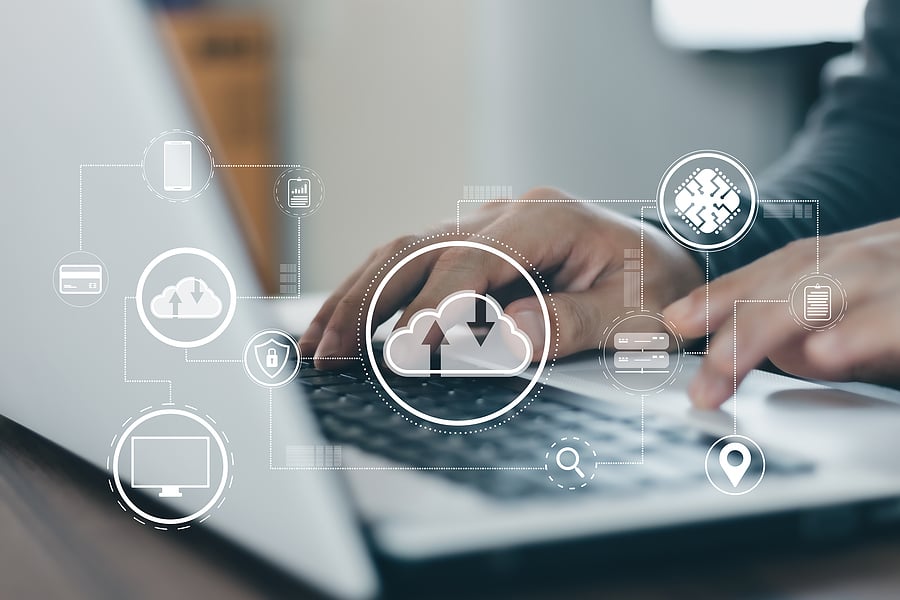Implementing Email Security at Your Business
Email has become an indispensable communication tool for businesses, but it also presents significant security risks. Cyberattacks, data breaches, and phishing attempts are just a few of the threats that can compromise the security of corporate email accounts. In this blog, we will explore essential steps businesses can take to implement robust email security measures and protect their sensitive information from unauthorized access.
Strong Password Policies and Multi-Factor Authentication
The first line of defense for securing corporate email accounts is implementing strong password policies. Encourage employees to use complex passwords that include a combination of letters, numbers, and special characters. Additionally, enforce regular password changes to minimize the risk of password compromise.
Furthermore, enable multi-factor authentication (MFA) for email accounts, requiring an additional verification step beyond a password, such as a unique code sent to a registered device. MFA adds an extra layer of protection and makes it significantly harder for unauthorized individuals to gain access to email accounts.
Employee Education and Phishing Awareness
Educating employees about the risks of phishing attacks is crucial in preventing email-based security breaches. Conduct regular training sessions to raise awareness about common phishing techniques and provide guidelines on how to identify and avoid suspicious emails. Encourage employees to scrutinize email senders, verify links before clicking, and report any suspicious activity promptly. By fostering a culture of vigilance and knowledge, employees become an active line of defense against phishing attempts that can compromise email security.
Email Encryption and Data Loss Prevention
Implementing email encryption and data loss prevention (DLP) measures adds an extra layer of security to corporate email communications. Encryption ensures that sensitive information sent via email remains secure and cannot be intercepted or accessed by unauthorized parties. DLP solutions can help identify and prevent the accidental or intentional leakage of sensitive data through email. By encrypting email communications and implementing DLP policies, businesses can mitigate the risk of data breaches and unauthorized access to confidential information.
Robust Spam and Malware Protection
Deploying robust spam and malware protection mechanisms is essential for maintaining a secure email environment. Utilize advanced spam filters that can identify and block malicious emails containing malware, phishing attempts, and other harmful content. Regularly update spam and malware protection software to stay ahead of emerging threats. Additionally, consider implementing email reputation services that assess the reputation of incoming emails and filter out potential threats. By proactively filtering out spam and malware, businesses can reduce the risk of email-based security incidents.
Regular Email Security Audits and Updates
Regular cybersecurity audits and updates are vital for maintaining strong email security. Conducting periodic audits helps assess the effectiveness of existing measures and identify vulnerabilities. Professional IT security firms can perform comprehensive audits, evaluating the email security infrastructure, identifying weaknesses, and suggesting improvements. These audits keep businesses ahead of emerging threats.
Keeping email security software and systems up to date is crucial. Regular updates for email server software, spam filters, antivirus solutions, and encryption tools provide the latest security patches and enhancements. Updates address known vulnerabilities and align with industry standards. Neglecting updates exposes email accounts to exploits and increases the risk of breaches.
Regular security audits and updates enable proactive vulnerability management, adaptation to new threats, and protection of sensitive data transmitted through email. By prioritizing these practices, businesses strengthen their email security, mitigating risks in the ever-evolving threat landscape.
Conclusion
Implementing robust email security measures is critical for safeguarding corporate email accounts and protecting sensitive information from unauthorized access. By enforcing strong password policies, utilizing multi-factor authentication, educating employees about phishing threats, implementing email encryption and DLP measures, and deploying robust spam and malware protection, businesses can significantly enhance email security. Remember, email security is an ongoing process that requires regular updates, employee awareness, and proactive measures to address emerging threats.
If you’re unsure of where to start with your corporate IT, our support teams are here for you. Contact us today to see how we can implement an efficient IT plan that is fine-tuned to your needs. By prioritizing your email security, we can minimize the risk of data breaches, maintain customer trust, and ensure the integrity of your corporate technology.






